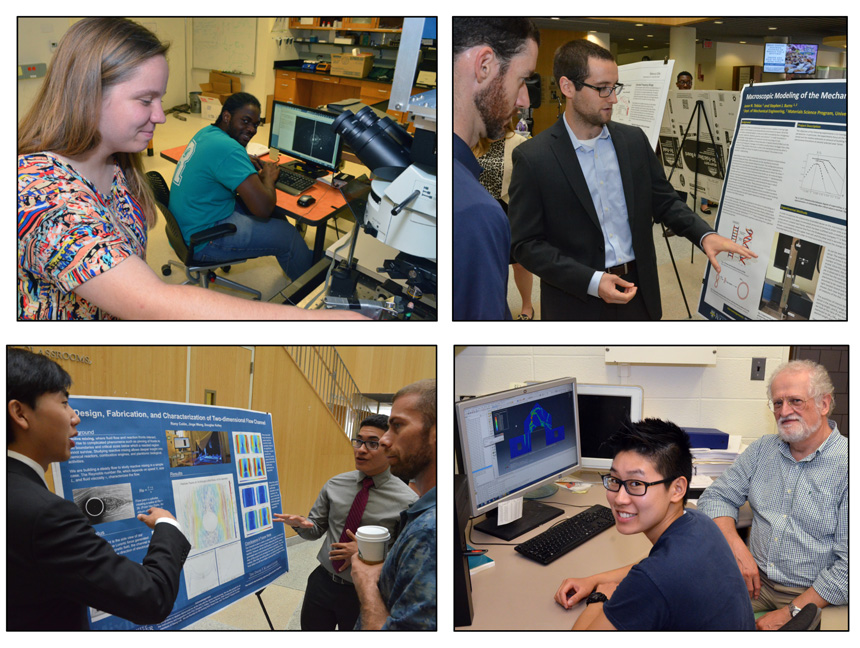MechE undergrads spend summer doing hands-on research

Why do blooms of plankton form behind islands? Can a historical cathedral in Peru be protected from earthquakes? How can DNA store so much information in an extraordinarily small space? How do the fluid dynamics of the inner ear affect hearing loss?
The wide range of research opportunities open to undergraduates in the Department of Mechanical Engineering was on display recently at the annual Xerox Engineering Research Fellows poster session.
Each summer, the program gives rising juniors and seniors in the Hajim School of Engineering and Applied Sciences a chance to do hands-on research under the mentorship of faculty members and the PhD students in their labs.
This summer, seven MechE undergraduates participated.
Catherine Yip used nonlinear finite analysis – a computerized method for predicting how material reacts to real-world forces -- in the quest to protect a culturally and historically significant church in Peru from earthquakes.
Dyreek Brathwaite, Rebecca Gillie and Devanjith Fonseka helped fine tune a novel microfluidic chamber to help address a pivotal question in human hearing loss.
James Tobias devised a way to apply incremental amounts of torsional strain onto a single polymer strand to help understand the mechanical properties of supercoiling, which occurs in DNA molecules. This could help explain various biological processes.
Ronnie Colon and Jinge Wang set up a chamber to study the mechanics of how fluids flow around an obstacle, and the potential for reactive mixing in the “wake” zone behind it. This could help explain blooms of plankton behind islands and have applications for carbon sequestration and enhanced oil recovery.
“Classes are one thing; doing a project is something else,” said Emeritus Professor Stephen Burns, who mentored Tobias. “It helps a student mature.”
“Moreover, the program involves the students at a time when they are starting to make decisions about what they would like to do with their lives. It gives them a chance to see what exciting research can be like.”
“They learn, and I learn,” added Professor Renato Perucchio, who has mentored eight Xerox fellows over the years.
